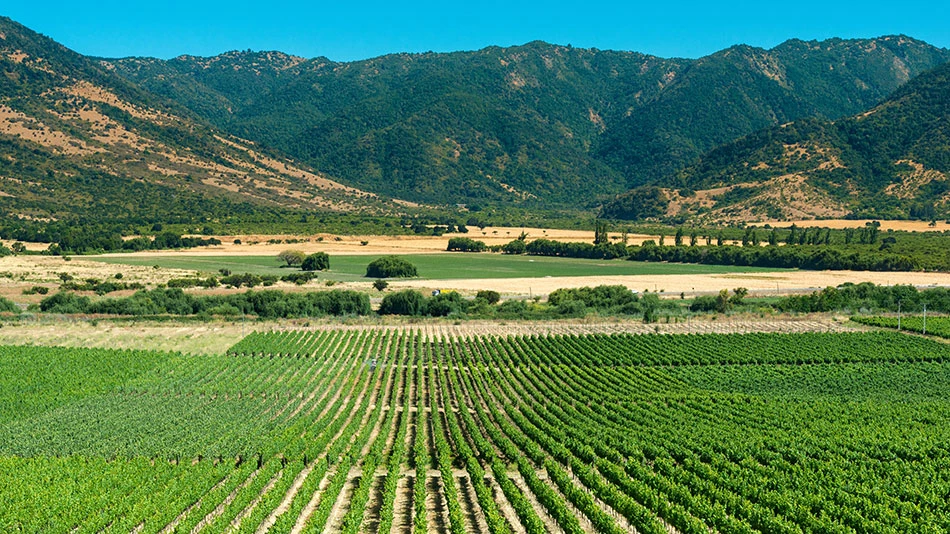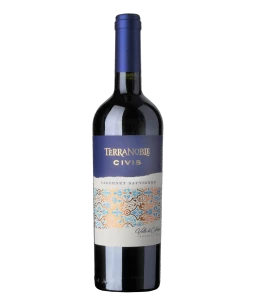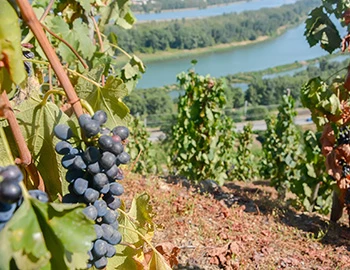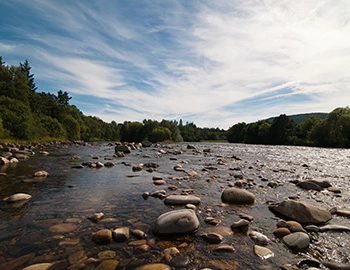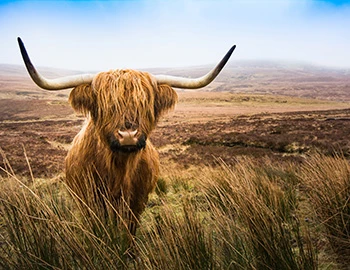Valle Central
Valle Central: the heart of Chilean viticulture
Valle Central comprises the four most important wine-growing areas in Chile. It starts in the southern outlying districts of the capital, Santiago, and stretches around 400 kilometres to the south, ending at the city of Parral. Red Bordeaux varieties occupy over 70 percent of total vineyard area. Depending on how strongly the particular microclimate is influenced by the cool influence of the Andes or the Pacific, stylistically varied wines result. Specialties like Carménère, Syrah and Carignan are gaining ground.
Red wines from Valle Central
The nearby viticulture has influenced life in the capital of Santiago for centuries. And no wonder – Spanish settlers planted the first vines here in the 16th century. The expanding metropolis has since fully incorporated some of the most legendary vineyards of the growing area of Maipo. Because the first seedlings from Bordeaux were planted here in 1850, Chilean Cabernet Sauvignons that descend from these early plantings are simply considered to be ancestral Cabernets. This is because phylloxera, which destroyed all of Bordeaux's ungrafted vines, has thus far spared Chilean vineyards.
Cabernet reacts
Valle Central comprises (from north to south) the cultivation areas of Maipo, Rapel (with the famous Colchagua subzone), Curico and Maule. More than 80 percent of Chile’s vineyard area of over 120,000 hectares is located here. Cabernet Sauvignon, Carménère (also from Bordeaux, and considered Chile’s greatest specialty today) and Merlot set the tone. But specialties like Syrah, Carignan (partly from very old vine stocks) and Grenache succeed just as excellently as white wines from Chardonnay and Viognier.
A mosaic of terroirs
Valle Central is bordered by the Andes to the east and by the coastal mountains to the west, the Cordillera, which largely protect the valley from the cold Pacific air. But where breaks in the hills allow ocean air to penetrate to the interior, the terroir is considerably cooler. Very similar mechanisms apply in relation to the Andes. Depending on the topography in the valleys, the vineyards are exposed to different levels of cool Andean air. Because of these complex climatic conditions, the northern growing areas of Valle Central are not necessarily the warmest. Thus the Curico zone, for example, is considered distinctly warmer than Rapel, bordering to the north.
